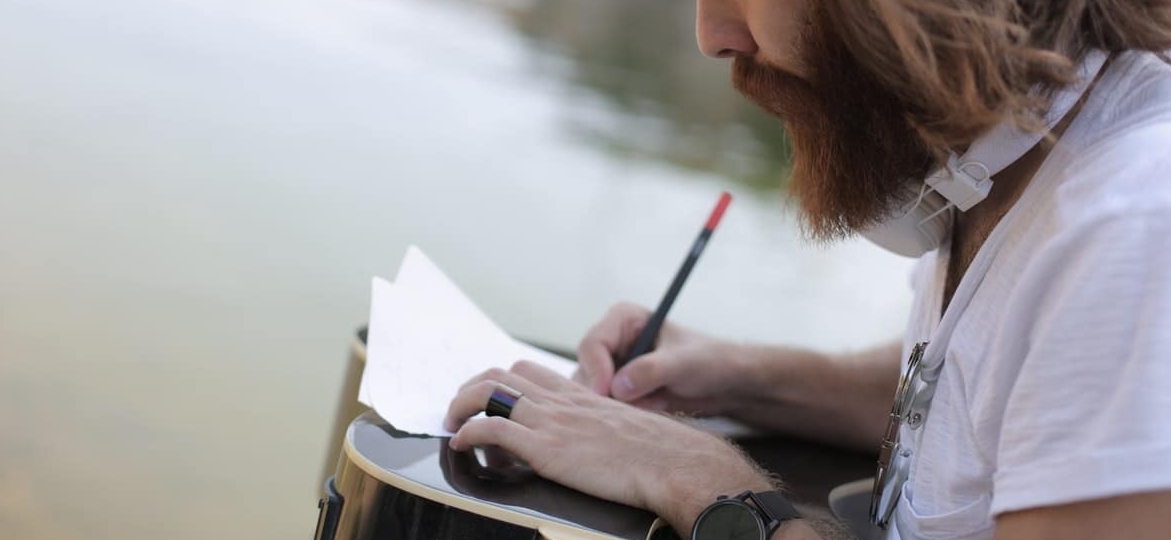Studying for the IELTS Speaking Test is extremely important as it is considered the most difficult part of the entire test. We have put at your disposal some practice tests under the form of candidate cue cards for each part of the IELTS speaking section.
Ready for a fun, educational journey while taking the IELTS test? Let’s jump right into it.
IELTS Speaking Topics and Practice Tests
IELTS Speaking Part 1: Topics, Questions & Answers
IELTS Speaking Part 2: Topics, Questions & Answers
IELTS Speaking Part 3: Topics, Questions & Answers
Free Online IELTS Practice Tests
IELTS Practice Tests for all the sections
IELTS General Training Practice Tests
IELTS Reading Practice Tests
IELTS Writing Practice Tests
IELTS Listening Practice Tests
IELTS Speaking Topics For Part 1: Candidate Cue Card #1
This part of the test begins with the examiner introducing himself or herself and checking the candidate’s identification. It then continues as an interview.
This interview feels more like informal conversation with 5 questions.
Question 1: What normally makes you smile?
Explanation
Use discourse markers, for example, ‘like’, ‘you know’ to provide time to think about responses but do not disrupt your flow of speech.
Suggestion
I think lots of things make me smile generally, particularly social occasions but also you know when I’m on my own, whenever I meet my friends and things like that. You know, I smile because it makes me happy. Also, like, when I’m watching TV. Particularly comedy programmes and things like that. It could be that something that makes me laugh. You often smile before and afterwards because, you know, you’re in a good mood. And, it makes you feel happy. If I read a message on my phone and someone writes something funny then I’ll often be smiling without even realising it! I’m smiling now just thinking about that!
Question 2: Do you like smiling in photographs?
Explanation
Using comparatives in your response will show the examiner that you are a higher-level candidate.
Suggestion
I don’t genuinely like taking photos, I mean, having photos taken of me. I think it’s quite difficult to make yourself smile. You know, particularly if you’re not feeling into it, like the weather is bad and you’re having a bit of a miserable day. It’s kind of difficult to force yourself to smile amongst a group of people for no reason. And for some reason in photos, smiling always comes across as being slightly unnatural. Generally it’s not very warm. I find that photos taken of me without my knowledge, and without knowing that they’re being taken are often much better than the ones where I have to literally strike a pose or you know force my face into, into a smile. This is why people usually take five or six photos at a time. One of them will look more natural than the others.
Question 3: When was the last time you saw a large group of people smiling?
Explanation
Part one is a good opportunity to demonstrate your vocabulary specific to your experiences, using more sophisticated words, such as ‘jubilant’ give the examiner an opportunity to witness the breadth of your vocabulary knowledge.
Suggestion
Probably the last time was a few weeks ago when I went to a football match in my hometown, and it was great. We won five-nil. And a lot of people were smiling then and there was a very jubilant atmosphere in the stadium with lots of people singing and jumping up and down in the stands. So that was an occasion where virtually everyone was smiling, except the away fans, of course, who weren’t smiling at all. They were quite upset actually. If they had won then they would have been smiling and I wouldn’t have been!
Question 4: Can you tell when somebody’s smile is not genuine?
Explanation
If you notice you have made a mistake and can quickly repair what you have said, you should.
Suggestion
Well, as I said earlier, in my other response. When talking about photographs. You know I can certainly tell my own smile is not genuine and not real because I’m conscious of the fact that I’m being forced to smile, but I don’t know about in a social occasion with other people. I mean, you know, I think sometimes it’s somewhat difficult to know whether someone’s smile isn’t genuine or warm. I mean when you meet someone for the first time it’s difficult to tell. You know, to what extent they are genuinely happy to meet you. Or, you know, whether they’re acting and being deceptive with you and presenting a face so to speak, so I would say I’m not very good at that, to be honest.
6
Explanation
It is impossible for candidates to prepare long responses and memorise them like text as it will simply sound unnatural. It is best to generate ideas surrounding and use them naturally in real conversation to practice.
Suggestion
Well, I’m from the Middle East and smiling. Smiling is crucial in my culture. It’s, you know, very important to fulfil for several reasons. You know, showing respect for other people is an important part of social etiquette. I think smiling is a big, important aspect of that. It’s important that your words match the expression on your face. And when you greet people, and inquire about them, particularly for the first time or after not seeing them for a while. It’s important that you smile, so you show your sincerity when talking to them. It’s really important and I would say far more important in the Middle East than it is in Europe where, you know, people can say hi how are you I’m fine with a completely blank expression on their face. So, it just sort of going through the motions of saying it rather than having any sincerity, I think if you did that in my culture, it would seem extremely strange and even a little rude.
Other examples of questions:
- Do you study or do you work?
- Let’s talk about food… Do you eat more salty or sweet foods?
- What kind of food did you eat when you were younger?
- Have you ever had a job?
- Why do/did you like going to work every day?
- Do you know your next-door neighbors?
- Talk to me about your city, what’s it like?
IELTS Speaking Topics For Part 2: Candidate Cue Card #2
Candidate Cue Card for part 2:
You will have to talk about the topic for 1 to 2 minutes.
You have one minute to think about what you’re going to say.
You can make some notes to help you if you wish.Describe a trip from your childhood that you remember well.
You should say:
- Where you went and why
- How you got there
- What you did there
- And explain why you remember it so well
Explanation
The note taking is very important to help you to focus and make sure you answer every part of the question, but don’t write the whole script out; instead use keywords such as: relatives / Canada / young / wedding / train / airport / food, and so on.
Suggestion
I went with my family to visit some relatives that lived in Canada. They had moved there when I was very young and so I didn’t remember them. One of my cousins was getting married and my parents thought it would be a good opportunity to kill two birds with one stone: to have a reunion with the family and to see a new place.
We were very lucky that we lived close to a train station, so we were able to walk there and then catch the train to the airport. It was the first time I had flown, and everything was very exciting for me, from seeing all the planes, to being able to watch hours of movies on the journey. I also remember being given a kids’ pack on the flight with toys and colouring things in. I don’t think I liked the food too much though!
When we arrived, we were met by my mother’s sister, who took us back to her house where I got to meet some of my cousins and rest for a bit after our long journey. I had so much fun playing with them as they were of a similar age to me. I found the wedding ceremony quite boring, but we had a lot of fun dancing and eating afterwards. On that trip, my relatives took us to many famous places in the city and I fell in love with it.
I remember it so well because I loved everything about it! I stayed in touch with my cousins and we became good friends. We’ve seen each other a few times since, and they have inspired me to go and study in their city.

IELTS Speaking Topics For Part 3: Candidate Cue Card #3
Question 1: Let’s discuss the impact of musical instruments. Do you think musical instruments have any importance in society?
Explanation
There are some good examples of relevant vocabulary related to music here and that’s something candidates can practise in advance of any test just by learning sets of vocabulary for common topics.
Suggestion
I would definitely say so. They are a part of a person’s cultural identity. I think all people should have the chance to play an instrument at some point in their lives and especially as children because that’s when people pick things up quicker. Most countries have an instrument or type of music that represents them. Things like Scottish bagpipes, Indian sitars and French accordions are just some examples of culturally associated instruments. Learning to play an instrument helps people appreciate their own culture and can provide a source of fun, entertainment and even musical therapy. What would the world be like without musical instruments? The world is definitely a much better place with them in it! I had guitar lessons at school and I wish I had taken them more seriously and I’m sure a lot of other people feel the same way.
Question 2: What kinds of musical instruments are popular with young people in your culture?
Explanation
There are lots of nice comparisons in this answer e.g more accessible and it’s worth practising them before your text so they are fresh in your mind. Using comparatives, conditionals, phrasal verbs and idioms will help elevate your score.
Suggestion
The most popular instruments in my culture are probably instruments like the Balalaika which is a three stringed instrument you play with your fingers. There’s also the Domra, a four stringed instrument which is a variant of the Chinese mandolin. But I still think these days the most popular instrument is probably still an acoustic guitar. People like to play them at school and then at university and often get together with their friends and join a band. So the guitar is the most popular because you can carry it anywhere. It’s fully portable, unlike the piano. There are so many people who learn how to play classical piano, but you very rarely actually hear play. It’s just something they do alone in their own homes, I guess. Guitars are just something that are more accessible to everyone.
Question 3: Finally, let’s talk about the influence technology has had on music. How has technology affected the kinds of musical instruments and music that is popular with young people?
Explanation
It’s a good idea to start talking even if you haven’t quite decided what you’re going to talk about. There’s an example of that at the beginning of this response.
Suggestion
I’ve never really thought that before. Well, I suppose that technology has really changed things because nowadays people can use synthesisers and all kinds of electronic gadgets to compose music with and then different devices to listen to music on as well. The internet has opened up new opportunities for young people because they can listen to people teaching them how to play an instrument on the Internet and also pick up tips so things like guitars have become very popular. People can do their own acoustic versions of popular songs and in some cases they can go viral. When it comes to the actual music itself you only have to listen to modern music to see the difference compared to say 30 or 40 years ago and now there’s so many electronic sounds in the music that is created by computers or by using sound mixers, but personally I still prefer some of the old styles of music. I’m into all things retro. If I had been born in the seventies, I think I would have preferred the music and fashions around then!
Improve Your IELTS Test Results With The Help of GlobalExam
Preparing for the IELTS General Speaking practice test can be a little difficult and overwhelming, which is why you need a great online platform that is specifically designed to help anyone with their language tests.
GlobalExam is the right solution for you because it will allow you to train for the IELTS test with the best resources. By giving you many exercises, you will have the right tool to study, train, and measure your skills. Plus, you will be given the answers, corrections, and extremely helpful tips. We will help you feel like you are in the exam room that is sprinkled with a lot of joy, fun, and motivation because we believe it’s the best way to learn.
What do we offer?
We offer a wide range of training modes to help you work in the best conditions possible. Once you sign up, here are the things you will be able to take advantage of:
- Examination: You will be allowed to do IELTS mock tests to experience the test in real-life situations.
- Training: You can train on several exercises, which will be available per section to help ease the process for you.
- Corrections: The exercises and mock exams will be detailed and will offer in-depth corrections for each question and score.
- Statistics and competencies: By checking your statistics, you will be able to point out your weaknesses and strengths in each section.
- Revision sheets: Grammar and vocabulary study sheets are available for you to study whenever you want.
- Revision planning mode: You can follow a revision path to help you be guided on the exercises.
So, what are you waiting for? Improve your English skills, study the language, and train for your IELTS test with GlobalExam to guarantee the score of your dreams.



